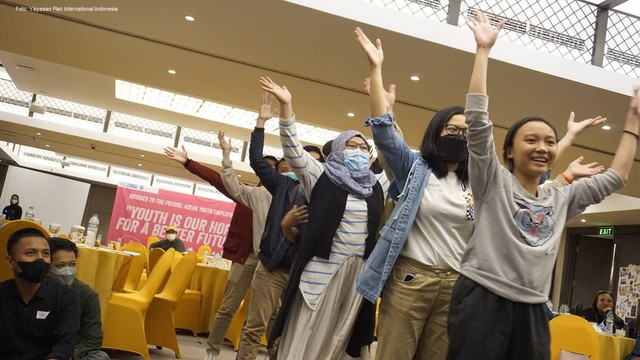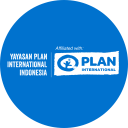Tentang KamiPedoman Media SiberKetentuan & Kebijakan PrivasiPanduan KomunitasPeringkat PenulisCara Menulis di kumparanInformasi Kerja SamaBantuanIklanKarir
2025 © PT Dynamo Media Network
Version 1.100.8
Konten dari Pengguna
Reviving the Spirit of Indonesian Youth (Sumpah Pemuda)
28 Oktober 2022 16:59 WIB
·
waktu baca 4 menitTulisan dari Plan Indonesia tidak mewakili pandangan dari redaksi kumparan

ADVERTISEMENT
The 1928 Youth Pledge (Sumpah Pemuda) occurred almost a century ago. Still, the spirit will always drive Indonesia's young generation to thrive, especially during COVID-19 and post-pandemic, which has caused a social and economic disturbance for Indonesia's young workforce.
ADVERTISEMENT
According to ILO (2021), Indonesian young people face economic loss during the COVID-19 pandemic, primarily because of the dynamics of layoffs (PHK) and the lack of job availability. The downturn has decreased their mental health and well-being.
The hit is even harder for vulnerable groups, such as women and persons with disabilities, whose absorption in the formal work sector is lower than in other categories.
Statistics Indonesia (2020) noted that only 0.18% of the population aged 15 years and over with disabilities were working, indicating a 0.1% decrease from 2019. In addition, LIPI researchers, Meilianna and Purba (2020), showed that COVID-19 brought a general loss of income, where women showed a higher loss (15.8%) as compared to men (14.7%). At the same time, the younger generation (15-24 years old) is most vulnerable to layoffs (34.5%). This statistic confirms the ILO's prediction that one in 6 young workers would lose their job during the pandemic.
ADVERTISEMENT
In response to this challenge, the Indonesian government implemented a Pre-employment Card Program, a subsidy for informal workers and SMEs affected by COVID-19 to access training and re-skilling. As of February 2022, the program has accommodated 11.4 million recipients (KOMINFO, 2022).
With a similar vision, Yayasan Plan International Indonesia (Plan Indonesia), supported by Google.org, has organized the Bridges to the Future program, commonly called BTF. Plan Indonesia carried out skills development training (soft and technical skills) through the program, targeting the most vulnerable: young women and youth with disabilities.
With a collective and participatory spirit, BTF created its community approach, which separated participants (Brightees) into groups. This method was mainly selected to let BTF participants convene and learn from each other. The cultural manifestation of this program is in line with the findings of Muh. Faisal, Founder of Youth Laboratory Indonesia, in 2017 in his book "Generasi Phi". Faisal found that the younger generation in Indonesia still has a tradition of living in groups, interacting with each other, and tending to have belongingness. The BTF program team captured these characteristics and engaged the youth groups in an interactive atmosphere.
ADVERTISEMENT
The program team also carried out most of the BTF activities in line with the Positive Youth Development (PYD) (MYAN 2022) approach: Assets (utilizing participants' competencies), Agency (determining the best activities for their own), enabling environment (creating a support system that allows participants to grow), and Contribution (developing themselves by having a positive impact on others).
The BTF team incorporated all of the approaches, which offers opportunities for Brightees to contribute as 'Youth Champions'. The youth champions or selected few participants had the chance to support the program/community through various roles. Some of them provided peer support, while others worked as a typist to provide text transcription for Deaf participants in BTF webinars. The champions also worked as psychosocial counsellors, discussion leaders, webinar organizers, career buddies, webinar moderators, and resource persons.
ADVERTISEMENT
We found that this practical and representative approach was beneficial through analysis of the process and feedback gathered from the youth. The group and leadership approach enabled BTF participants to get to know each other better, be more tolerant of diversity, and boost their self-esteem. It also helped them carry a sense of responsibility in teamwork, which was integral to their work-readiness self-development. With this method, the BTF team has succeeded in mentoring 3,865 Brightees and bridging 1,579 of them to new or better employment opportunities for almost two years.
After two years of service, the BTF program ended in October 2022. The BTF closing event coincided with the month of the Youth Pledge, which brought us to a significant reflection. We learned that any activity for young people would run more optimally if the youth were allowed to participate as widely as possible. Reflecting on history, the Youth Pledge was a creative process in which the younger generation shaped Indonesia and prepared the way forward for the Indonesian nation itself. Evidently, after 77 years of independence, Indonesia is still strong. It will continue to prosper in the years to come, thanks to the cooperation of its young generation. Therefore, it is essential to realize that an interactive and participatory approach to empowering the younger generation must continue to be pursued and become a shared mindset.
ADVERTISEMENT
Author: Beauty D. Sofranita
Youth Engagement Officer for Bridges to the Future Project, Yayasan Plan International Indonesia

